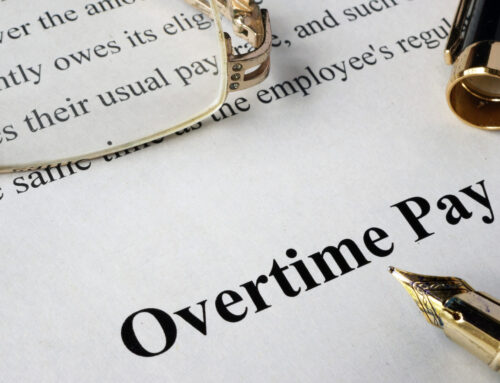
It is critical that employers avoid this cycle. Here are 3 important reasons to document poor job performance in your organization:
1) It provides employees an opportunity to grow.
I defend lawsuits for a living. But my clients do other things – they sell products and services, they educate students, they defend the public, they run ministries. And these clients hire and employ people for a reason – to help them achieve their organizational goals. When a manager allows an employee to persist in performing below standards, everyone suffers. The employee remains stagnant, other employees may become bitter, and the organization has a harder time meeting its goals. But documenting job performance can improve employee performance in a number of ways. Candid dialogue between employee and manager, for example, can root out the underlying causes of poor job performance, making resolution more likely. Additionally, even the best employees find motivation in knowing that their personnel files candidly reflect the objective and subjective quality of their job performance. And for those employees who don’t improve despite accountability, helping them move on to something they are more suited for is more helpful than harmful. All in all, no one benefits when employees persist in mediocrity.
2) It promotes fairness and accountability.
Inequity in the workplace can kill employee morale. When employee performance is not measured and documented, differential treatment of similar circumstances is more likely. While every employee is unique, it is crucial to treat like behavior with like rewards or consequences. Failing to do so can generate bitterness among your staff, accusations of unfair treatment, and turnover. The only way to ensure that employees are treated fairly is to document both the employee performance and the ways in which the deficiencies are addressed. Memories fade, supervisors come and go, but employee records can preserve history.
3) It protects your organization.
No matter the steps you take to coach underperforming employees to improvement, and no matter the effort that you exert treating employees fairly, you cannot make everyone happy. And sometimes employee discontentment makes its way into courtrooms. I’ve never advised a manager that he or she documented too much of an employee’s poor job performance. When push comes to shove, it’s hard to prove something that is not in the personnel file. Consequently, when employers are in litigation or even threatened with litigation, a well-documented personnel file is critical. It can mean the difference between a case going to trial or being dismissed. Thorough documentation also provides significant leverage when trying to negotiate settlements of employment disputes both before and during litigation, as well. Simply stated, rarely do employers lose or have to settle lawsuits because they document too much.
In the end, whether you are leading your employees or defending your organization, you will virtually never regret having documented employee performance in an authentic and thorough manner. But failing to document just might come back to haunt you.
*Photo credit: mrmanc via Foter.com / CC BY-SA
The information contained on this blog is not legal advice, nor does this blog create an attorney-client relationship. Klein Bussell attorneys do not blog about pending matters handled on behalf of our clients and will never disclose client confidences.
The information contained in this blog does not constitute legal advice, nor does this blog create an attorney-client relationship. KSM attorneys do not blog about pending matters handled on behalf of our clients and will never disclose client confidences.






